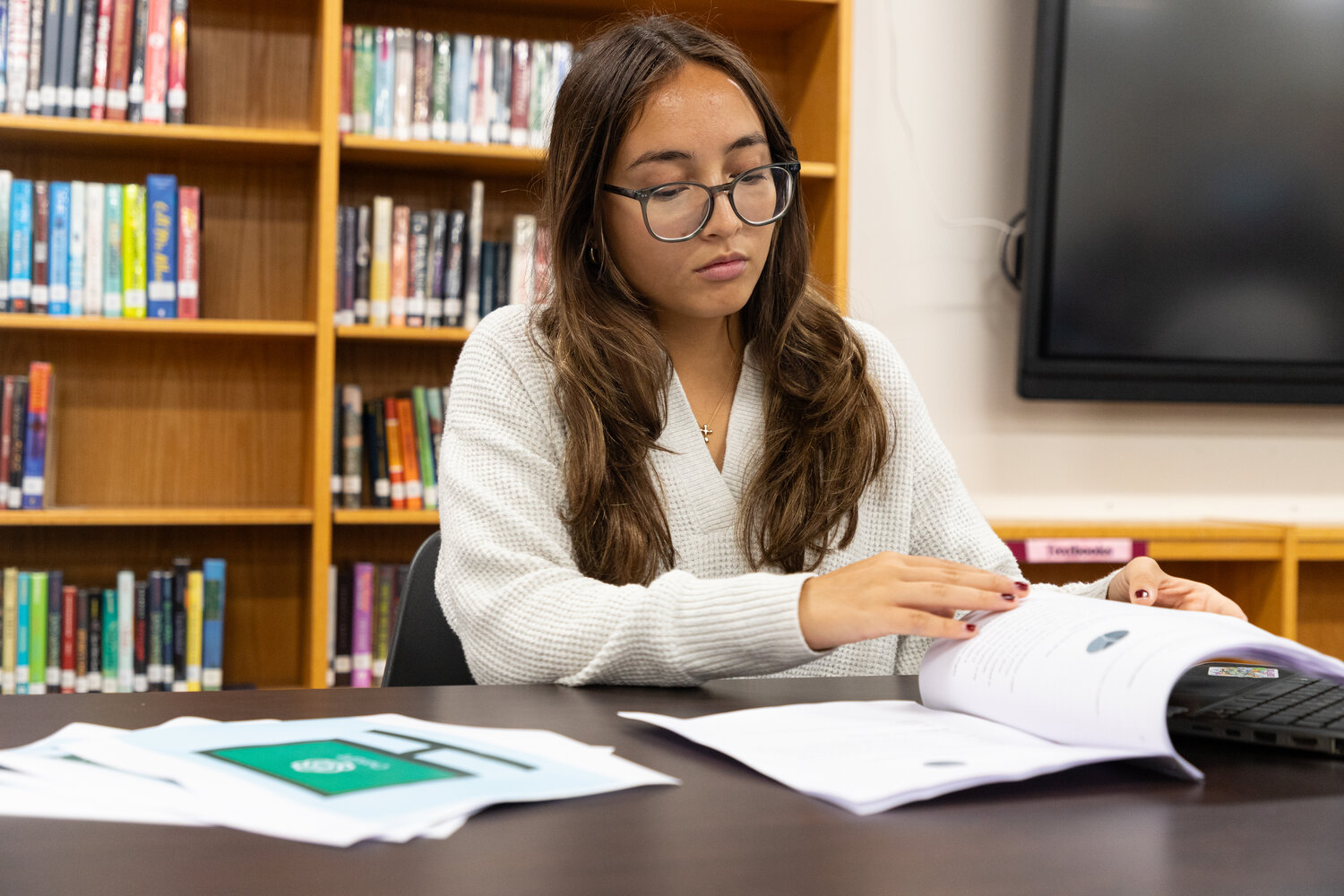This Valley Stream South High School senior asked dozens of students if they were cheating with ChatGPT. This is what she found.
Since ChatGPT, an artificial intelligence chatbot, arrived on the scene in 2022, it has taken the academic world by storm. The bots’ usefulness is hard to deny. For students, it can help polish their syntax and generate research ideas. But it can also, with a simple prompt, complete your book assignment, draft a full-length essay, and solve problem sets for you instantly. No extra brainpower is needed.
Presented with a formidable — albeit flawed — A.I. learning tool at their fingertips, the problem of A.I.-generated cheating and plagiarism is alive and well. But how widespread is the problem, and how have students approached the ethical questions the new technology raises?
Alyssa Gonzalez, a senior at South High School, was eager to find answers. As part of her AP Research class, she decided to embark on a research project delving into the realm of ChatGPT and how it has — or hasn’t — changed “students’ perception towards academic integrity.”
“If we can understand how students are using these services, school communities can understand how to regulate them and how to set those boundaries for the future,” Gonzalez said.
How students are using, and misusing, AI tools
She devised an online questionnaire featuring statements on ChatGPT use and academic dishonesty, asking students to rate their responses on a scale from “strongly disagree” to “strongly agree.” Statements like — “Usage of information generated by ChatGPT for school-related work does not constitute as cheating;” “I have personally witnessed the usage of ChatGPT by others to complete assignments for school.;” “There is a fine line between using digital services as a tool and exploitation.”
She fanned out her survey “as far and wide” as she could, reaching across social media to students throughout the tri-state area, aged 12 to 19, including right here in Valley Stream. Out of the 206 students surveyed, 188 were deemed eligible respondents.
The results confirmed her expectations but also revealed a few surprises.
Over a third of the students surveyed reported using ChatGPT for schoolwork, with most admitting they used it not just to understand the material but to complete assignments. Despite recognizing the importance of academic integrity and knowing they shouldn’t use such tools to cheat, many still did.
“The survey was a reflection of what I gathered from the people in my school and my environment around me,” said Gonzalez.
Student survey findings reveal interesting trends in AI use
While Gonzalez, 17, expected younger students to pass off A.I.-generated work as their own more often than their older — and hopefully wiser — peers, she was stunned to find cheating rates were consistent across all age groups.
Gonzalez also wonders whether her fellow students fully grasp the long-term consequences an overreliance on AI tools can spell for their future. If ChatGPT becomes a dangerous crutch for those who forgo exercising originality and critical thinking skills in school, it could spill into their professional lives.
“If you’re using these services to cheat and you’re not truly understanding the material, it is going impact a lot of people in college and beyond post-secondary education and into the workforce,” she said.
ChatGPT in the classroom: ally or adversary?
But Gonzalez warned against taking her study as providing ammunition to the argument of purging A.I. tools from classrooms. She resists cozily slotting ChatGPT into the “bad” or “good” category. Like any new technology, “setting boundaries” early about its ethical and unethical uses is a more useful starting point than trying to outright ban students from tapping into its enormous potential.
Gonzalez’s AP research teacher, Jeanette Azzaretto, couldn’t agree more.
“We know these tools are available for students,” she said. “This tool can enhance your studying, but nothing is going to replace the human brain and those human interactions. It’s so important that students don’t rob themselves of their intelligence and their intellectual growth.”
While some teachers have gone back to old paper-and-pen assignments or leaned on A.I.-detection tools, Azzaretto argues teachers can best minimize all forms of plagiarism by “making our expectations clear to students on assignments that we want authentic work.”
This is not just a one-time conversation about academic integrity but rather an ongoing discussion among teachers and students that serves as “checkpoints” along a student’s learning process.
“It’s about reaffirming what students are capable of and to ensure that they never feel they need to rely on A.I. instead of their own thoughts,” she said
Have an opinion on this article? Send an email to jlasso@liherald.com.






